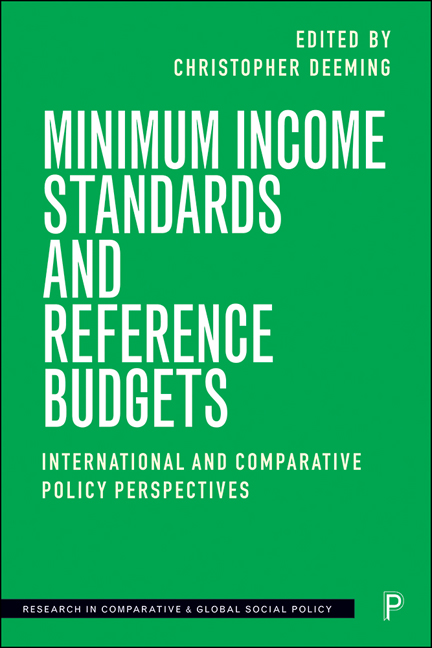Foreword
Published online by Cambridge University Press: 12 March 2021
Summary
Budget studies have a long history. Over the centuries, some employers, policy makers and social reformers have had interests in seeing that wage rates and social security systems were sufficient to prevent political disorder and physical and social deprivation among working people. In the UK, first the fluctuating cost of grain for bread and later of a few other basic essentials were identified as key criteria for contemporary class judgements of ‘how much was enough’ for the wages of low-paid workers and their families – those most at risk of suffering the consequences of deprivation or rebelling against them. The non-poor classes identified the social evils of poverty which ought to be philanthropically ameliorated if not actually politically abolished, and that required some criteria of minimum necessities. So when people started to ask ‘how much is enough’, the earliest budget studies were developed as systematic means of listing the components of minimum sufficiency. What this book very helpfully does is to show the current state of budget studies research around the world and its relevance to the general question: if the objective is to combat or prevent poverty, how much is enough personal disposable income?
Posing the issue in historical perspective shows how important this book is today in showing the disparate and often conflicting objectives for which budget studies are nowadays carried out. As a member of Peter Townsend and Brian Abel-Smith's team carrying out the first national survey of poverty in the UK in the 1960s, I’m delighted to be asked to introduce this volume. At that time we had not thought through what has since emerged as the implication of all studies of poverty – that since poverty is a dyadic relationship, we should have paid more attention to mapping what not-poverty is: the adequacy of personal resources for minimally decent inclusion in society. Because we had not sufficiently distinguished adequacy standards from poverty, the indicators we drew from pilot studies of what a normal inclusive life might or ought to include (such as being able to choose a cooked breakfast) were wrongly treated by some readers as our prescribed minimum necessities for poor people. We were counting people who seriously lacked resources for social inclusion, unlike those composing budgets in the earlier post-Seebohm Rowntree period who earnestly sought the lowest family incomes on which minimum dietary necessities could be obtained.
- Type
- Chapter
- Information
- Minimum Income Standards and Reference BudgetsInternational and Comparative Policy Perspectives, pp. xxii - xxivPublisher: Bristol University PressPrint publication year: 2020



